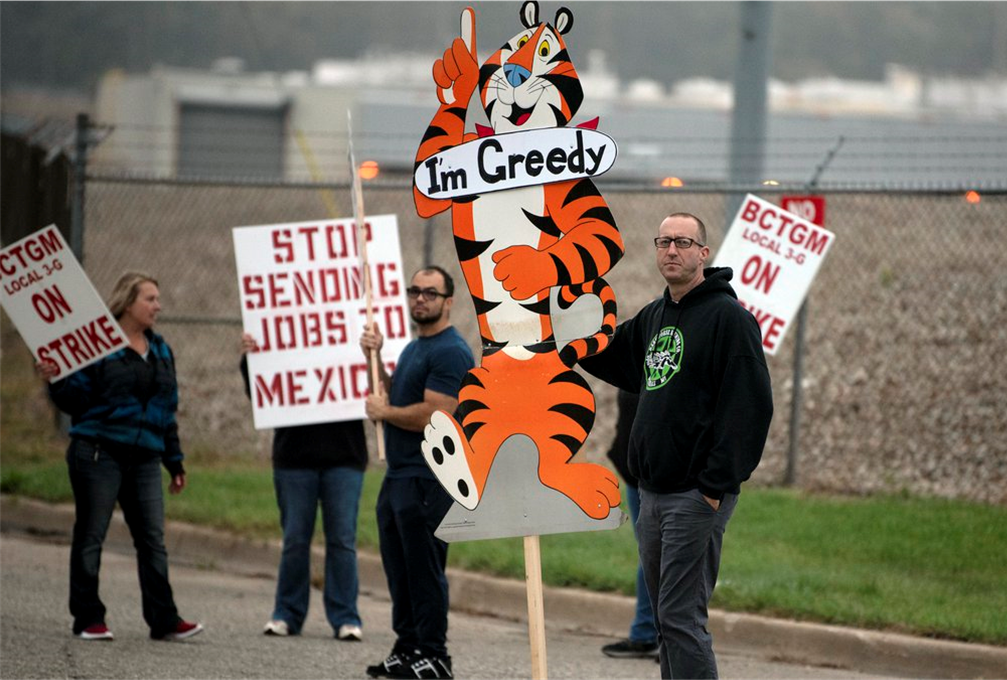Kellogg’s factory workers are continuing to strike for fair wages as the company employs aggressive anti-union measures against them. The union rejected a deal after two months of negotiations, and the company has recently announced its plans to hire replacement workers.
W.K. Kellogg, founder of Kellogg’s, said, “I’ll invest my money in people.” He did so for his workers with childcare, medical benefits, outdoor recreational space, and persistent fair compensation, even expanding to hire more workers at steady wages during the Great Depression. As journalist Judd Legum points out, the company’s claim that “W.K. Kellogg’s legacy continues to inspire us” falls dangerously flat for its workers as they maintain a strike.
Kellogg’s unionized workforce reports that factories have been “purposely understaffed,” requiring employees to work “72- to 84-hour work weeks.” COVID-19 has exacerbated the situation, leaving some factories to operate with 100 workers fewer than needed, though the company disputes this.
Decades of unionization empowered factory workers to demand livable wages, until a 2015 contract cut pay for new employees. But during the pandemic, the cereal and snack business has boomed, with Kellogg’s reporting $1.4 billion in profits during the first three quarters of 2021.
Workers have been striking since October, when the 2015 agreement expired, to demand fair compensation. But the union rejected the company’s first contract offer, which would have employed more workers at a lower rate, while progressing to eliminate the higher rate entirely. The company responded with aggressive anti-union tactics, including the hiring of strikebreakers.
Kellogg’s — whose executives’ compensation increased 54% from 2014 to 2020 — has announced it has no plans to continue negotiations with the union as it hires more replacement workers. But if the National Labor Relations Board finds workplace complaints against Kellogg’s legitimate, it would be illegal for the company to permanently hire the striking workers’ replacements.
The Protecting the Right to Organize (PRO) Act would further restrict such union busting strategies, and Joe Biden supports the measure. The president opposed Kellogg’s move to hire permanent replacements, saying “Collective bargaining is an essential tool to protect the rights of workers that should be free from threats and intimidation from employers.”
Image by Alyssa Keown / AP

